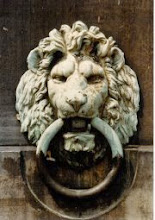I just finished reading an article online from Reason Magazine. It was about the ancient English and American legal premise of jury nullification. Judges in this nation used to instruct the juries that they had the right and the power to nullify a law that they thought was a bad law or if they thought that the law in a particular case should not be applied.
A famous case in America, when it was still thirteen colonies of England, is the trial of John Zenger in 1735. Zenger was accused of printing seditious libels against the Governor of the Colony of New York. Alexander Hamilton defended Zenger and a jury of twelve men found him not guilty in spite of the fact that it was clearly evident that he did print the seditious material.
The first Chief Justice of this nation, John Jay, stated that juries had the right to judge both the facts and the law. (See the second link, above.) But why would the Founding Fathers of this nation want juries to decide both the facts and the law?
"If a juror accepts as the law that which the judge states then that juror has accepted the exercise of absolute authority of a government employee and has surrendered a power and right that once was the citizen's safeguard of liberty." (1788) (2 Elliots Debates, 94, Bancroft, History of the Constitution, 267)
However, the (in)justice system and the courts began to shy away from letting the jurors know about this ancient principle beginning with the trials under the Fugitive Slave Act of 1850. That Act allowed slave owners or their agents to come into free states and if they found a runaway slave, that person would be put in irons and sent back to his owner.
By the late 1800's courts informing juries of their right to nullification was pretty much dead. "In the 1895 in the case of Sparf v. United States written by Justice John Marshall Harlan, the United States Supreme Court held 5 to 4 that a trial judge has no responsibility to inform the jury of the right to nullify laws." The final nails in the coffin jury nullification happened after the prohibition of alcohol when many juries wouldn't convict know local bootleggers and moonshine still operators.
Was jury nullification always a good thing. No. In many cases in the South, all white juries would find defendants not guilty of murdering blacks even though the evidence was clear and convincing. But that was then. This is now. It would be much harder for that type of jury misconduct to happen now. Even in the South, today, it would be hard to get an all white jury. And even if that did happen, there are fewer overtly bigoted white people in the South than there were fifty years ago. Besides, "judges retain the rights both to decide sentences and to disregard juries' guilty verdicts, acting as a check against malicious juries."
Jury nullification is a right of the people to keep bad laws and bad prosecutors under control. Unless, of course, you are one of those who believe that the government can do no wrong. (If you are one of those you need to check out this site from the Innocence Project.)
The people need to petition the government (state and federal) to demand that judges specifically tell the juries that they have the right to decide both the facts and the law. Juries are our last defense between citizens and an overzealous, overreaching government that is more and more willing to disregard the inalienable rights of citizens and establish its "absolute authority." (Or, as I like to say: "All hail the Imperial Government. Dissenters will be shot.)
"Mistrust those in whom the urge to punish is strong." Friedrich Nietzche
"Any and all non-violent, non-coercive, non-larcenous, consensual adult behavior that does not physically harm other people or their property or directly and immediately endangers same, that does not disturb the peace or create a public nuisance, and that is done in private, especially on private property, is the inalienable right of all adults. In a truly free and liberty-loving society, ruled by a secular government, no laws should be passed to prohibit such behavior. Any laws now existing that are contrary to the above definition of inalienable rights are violations of the rights of adults and should be made null and void." D. M. Mitchell (from The Myth of Inalienable Rights, at: http://dowehaverights.blogspot.com/)
"Any and all non-violent, non-coercive, non-larcenous, consensual adult behavior that does not physically harm other people or their property or directly and immediately endangers same, that does not disturb the peace or create a public nuisance, and that is done in private, especially on private property, is the inalienable right of all adults. In a truly free and liberty-loving society, ruled by a secular government, no laws should be passed to prohibit such behavior. Any laws now existing that are contrary to the above definition of inalienable rights are violations of the rights of adults and should be made null and void." D. M. Mitchell (from The Myth of Inalienable Rights, at: http://dowehaverights.blogspot.com/)
Subscribe to:
Post Comments (Atom)

No comments:
Post a Comment